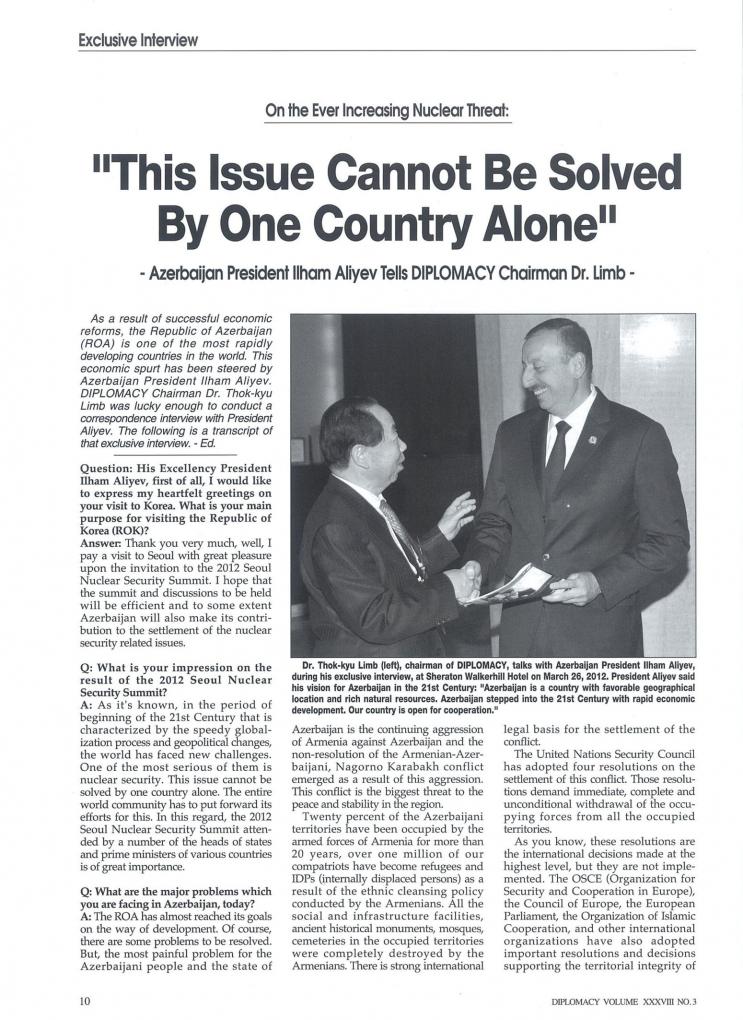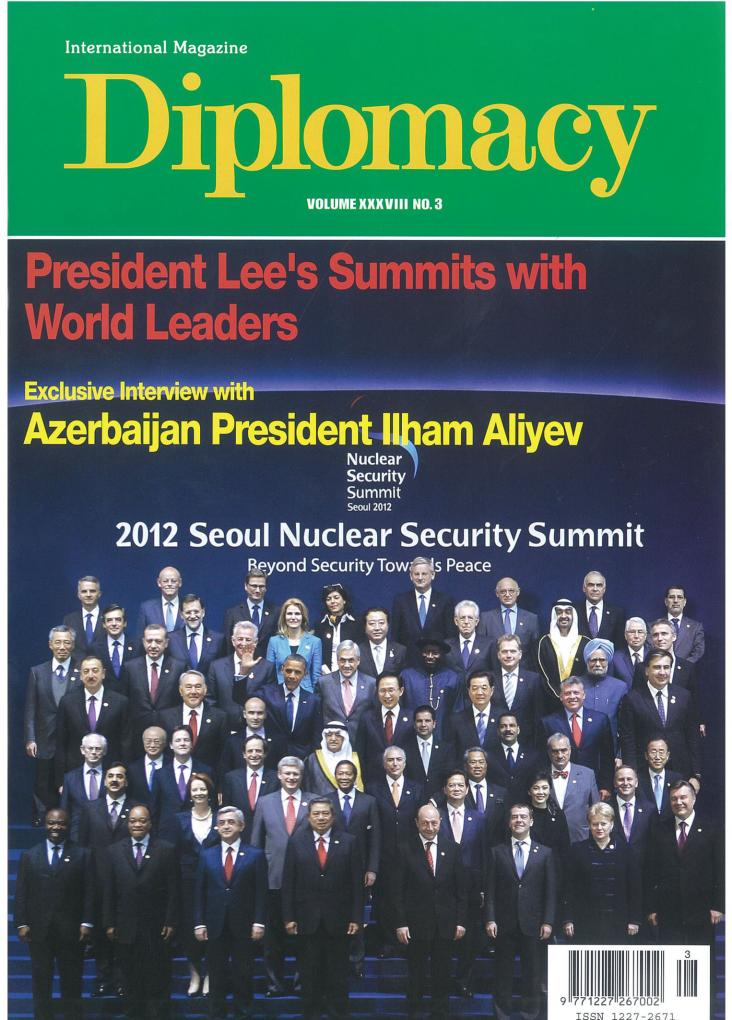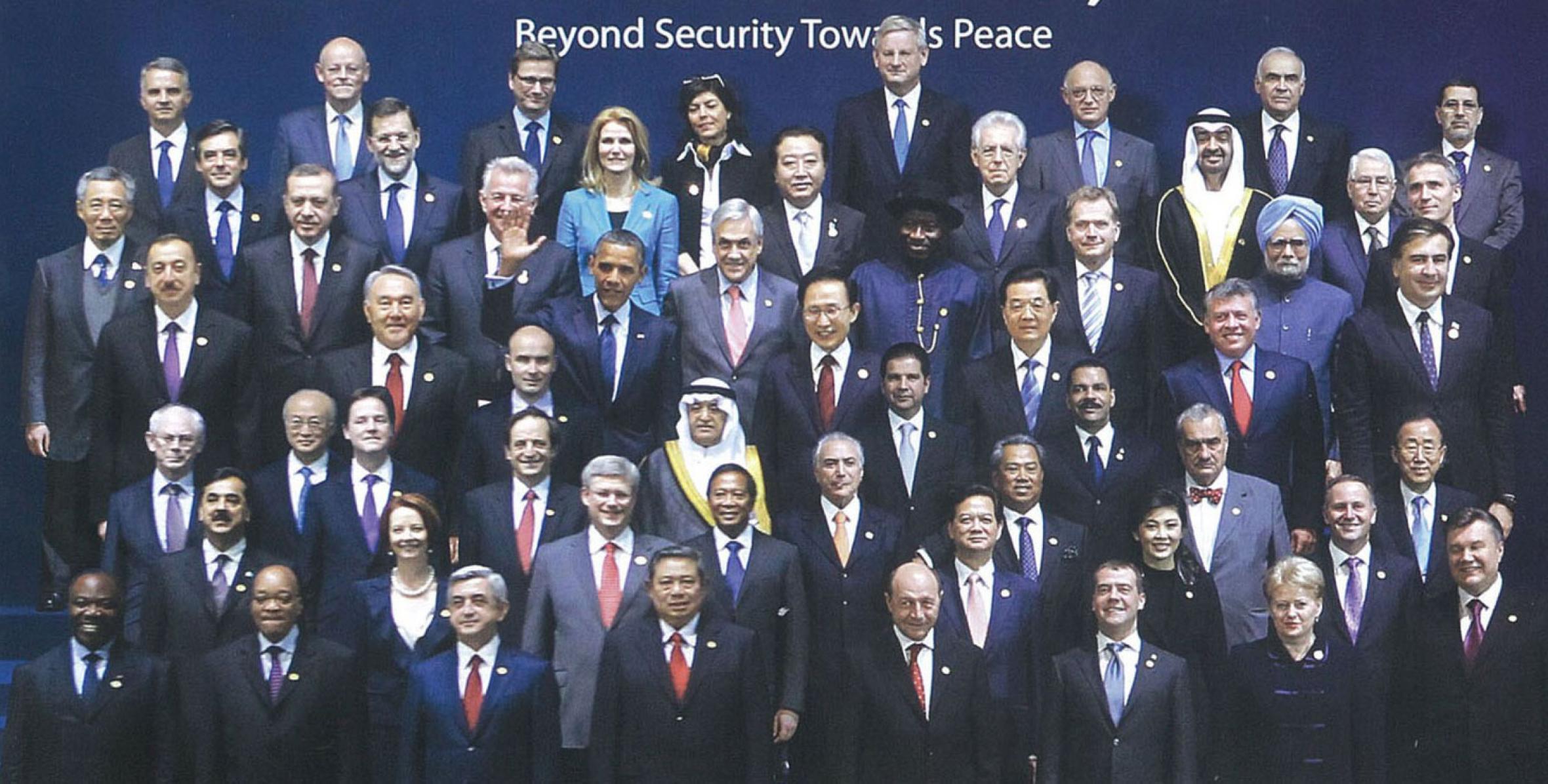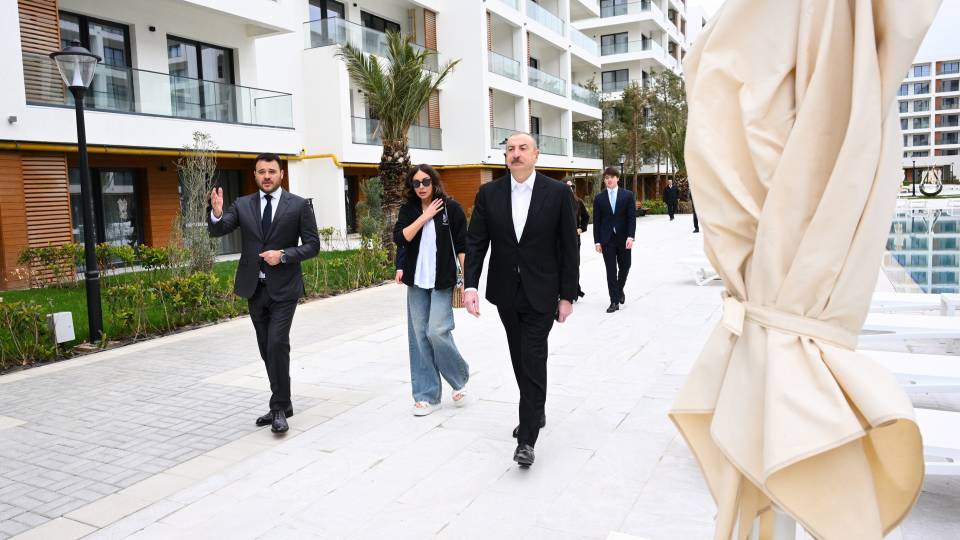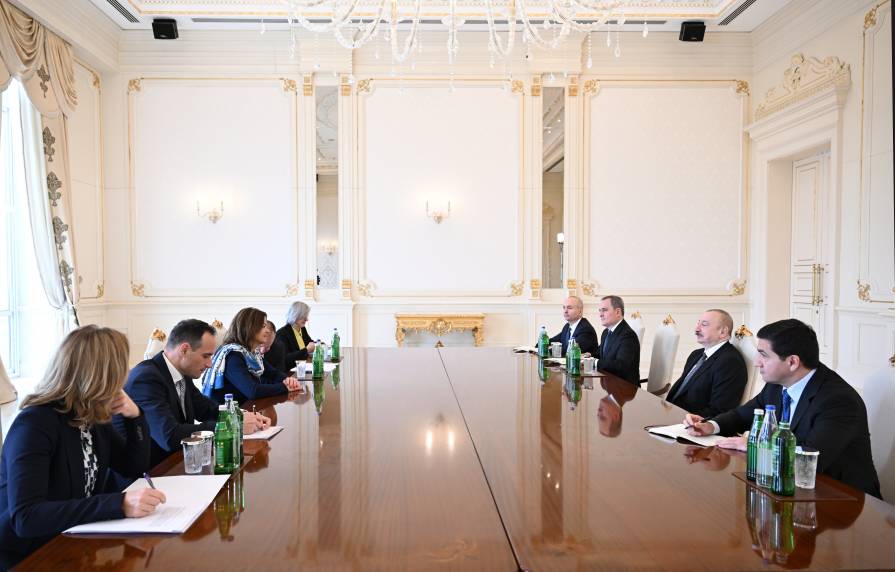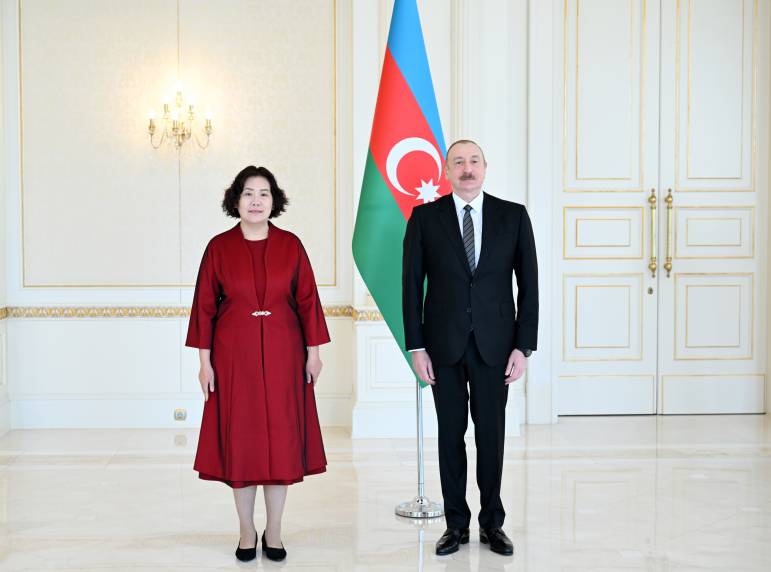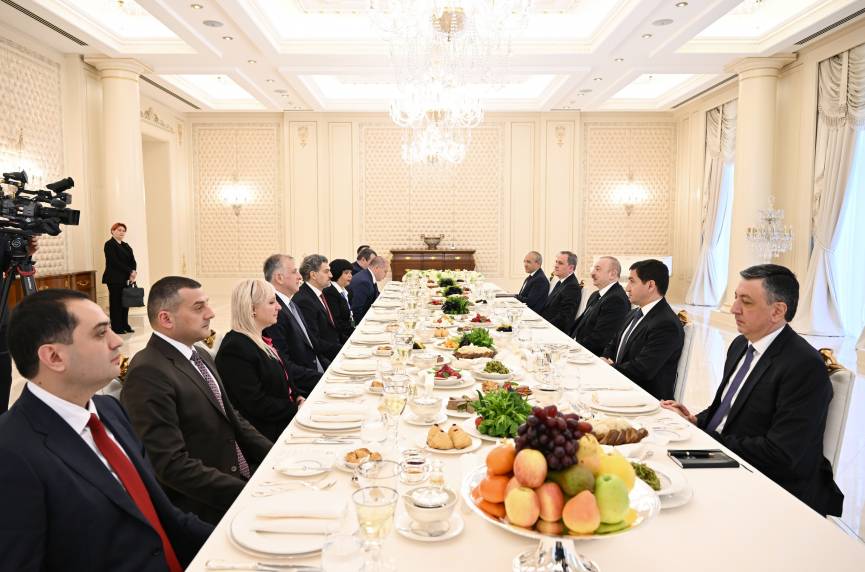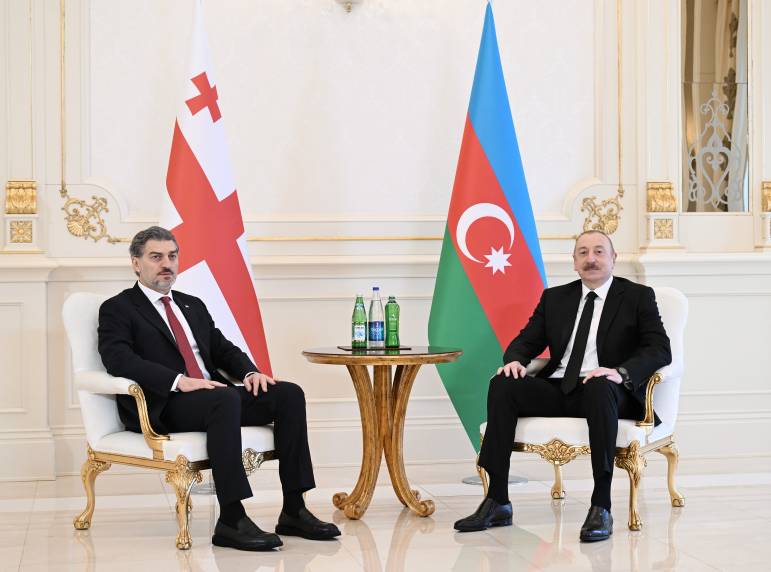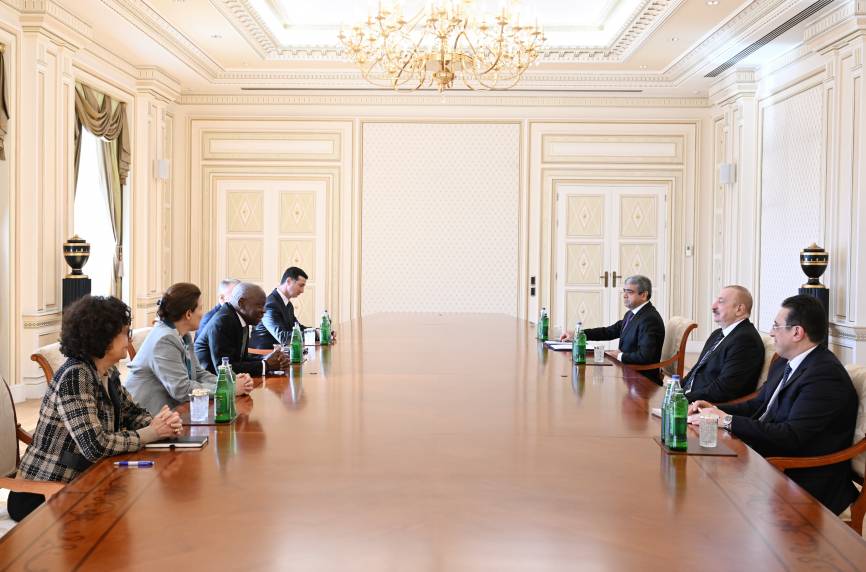The Republic of Korea’s influential Diplomacy magazine has published an interview with President of the Republic of Azerbaijan Ilham Aliyev. The head of the magazine, Thok Kyu Limb, said in introductory remarks about Azerbaijan that it is one of the most rapidly developing countries of the world as a result of its successful economic reforms and has achieved major progress under the leadership of President Ilham Aliyev.
- Your Excellency President Ilham Aliyev, first of all I would like to salute you on the occasion of your visit to Korea. What is the main goal of your visit to Korea?
- After accepting the invitation to attend the 2012 Seoul Nuclear Security Summit, I have come to Seoul with great pleasure. I do hope that the summit and the discussion to be held here will be fruitful and that Azerbaijan will to some extent contribute to nuclear safety.
- What are your impressions over the results of the 2012 Seoul Nuclear Security Summit?
- Against the backdrop of globalization and geopolitical changes ongoing on the international arena in the 21st century we have entered, the world is confronted with new challenges. One of the most serious challenges is nuclear security. This issue cannot be resolved by individual countries. The entire international community must apply effort to resolve it. From this standpoint, the 2012 Seoul Nuclear Summit attended by heads of state and government of various countries is of tremendous importance.
- What are the biggest challenges you face in Azerbaijan today?
- I can say with full confidence that Azerbaijan has achieved its development goals. At the same time, of course, there are some problems it is important to resolve. But the most painful issue for the Azerbaijani people and the state is the ongoing Armenian aggression against Azerbaijan and the unresolved status of the Armenian-Azerbaijani conflict over Nagorno-Karabakh resulting from this aggression. This conflict is the greatest threat to peace and stability in the region. For more than 20 years a fifth of Azerbaijani territory has been occupied by the Armenian armed forces. As a result of Armenia’s policy of ethnic cleansing, more than a million of our fellow countrymen have become refugees and IDPs. The Armenians have completely destroyed all the social and infrastructure facilities, ancient monuments, mosques and cemeteries on occupied territories.
There is a strong international legal framework to resolve the conflict. There are four UN Security Council resolutions on the problem. These resolutions demand an unconditional withdrawal of occupying forces from our territories. As we know, these resolutions are international decisions passed at the highest level, but they remain unfulfilled. The OSCE, the Council of Europe, the European Parliament, the Organization of Islamic Cooperation and other international organizations have also passed important decisions and resolutions supporting Azerbaijan’s territorial integrity.
Unfortunately, Armenia flouts them.
The OSCE Minsk Group has been engaged in the conflict settlement for years. Numerous meetings have been held between the presidents of Azerbaijan and Armenia with the mediation of co-chair countries of Russia, USA and France.
But the conflict remains unresolved due to Armenia's unconstructive position. This conflict can only be resolved by peaceful means, in line with international law and within the territorial integrity of Azerbaijan.
- What would you say about the current economic situation in Azerbaijan?
- Azerbaijan is one of the most rapidly developing countries of the world. As a result of the successful reforms carried out in recent years, Azerbaijan is the world leader for the pace of economic development. In terms of GDP growth, we have achieved the best result. Over the past few years our economy has grown by 300 per cent. Consistent measures are taken to eliminate unemployment. Over the past eight years more than a million new jobs were created. The unemployment rate is 5.4 per cent. Every year personal incomes exceed the inflation more than twice.
The poverty rate has dropped from 49 to 7.6 per cent. We have achieved sufficient economic diversification over a short time. Not surprisingly, leading international financial institutions appreciate Azerbaijan’s successes from this standpoint.
If we look at the conclusion of the World Economic Forum, we can see that in terms of competitiveness Azerbaijan ranks 55th in the world and first in the CIS. The international rating agency Standard & Poor's has also raised the sovereign credit rating of Azerbaijan. This is an indicator of the successful reforms implemented in the country. We have liberalized the economy and created good conditions for the private sector. Our liberal economic policies have created favorable conditions for entrepreneurship. The share of the private sector in the economy already exceeds 80 per cent. In general, Azerbaijan accounts for 75-80 per cent of the South Caucasus economy.
- What in your view are the prospects of economic relations between Azerbaijan and Korea like?
- The bilateral relations between Azerbaijan and Korea are rapidly developing. The documents signed during mutual high-level visits have created a solid foundation for expanding our economic cooperation. My official visit to Korea in 2007 gave a great impetus to the expansion of economic ties. A commission on economic cooperation between Azerbaijan and Korea was set up. The commission covers almost all areas of economic cooperation. In general, Azerbaijan and Korea have signed over 40 documents on cooperation in various fields. The favorable investment climate in Azerbaijan has enhanced the interest of Korean companies in our country. These companies are working successfully in the field of energy and information technologies and in many infrastructure projects of Azerbaijan. In 2011, the trade between Azerbaijan and Korea amounted to almost $650 million.
The economic cooperation between Azerbaijan and Korea has very good prospects, we have broad opportunities for cooperation. There are good opportunities for a long-term cooperation between our countries in the areas of science and technology, energy, transport, tourism, agriculture and other areas of common interest.
- Where do you see Azerbaijan the 21st century?
- Azerbaijan is a country with a favorable geographical location and rich natural resources. Azerbaijan has entered the 21st century with rapid economic development. Azerbaijan is open to cooperation. Our strong economy and the development of the oil and gas industry enable us to channel our resources into human capital. We are successfully implementing social infrastructure projects covering all areas and this will be continued in the future.
The development of science and technology, improving the education and healthcare to the level of the latest requirements and a complete modernization of society are our top priorities. At the same time, we attach great importance to the further development of the ICT sector. This year Azerbaijan will launch its first satellite into orbit. This is a huge success.
I also want to note that Azerbaijan has historically been the confluence of different civilizations. We have a society tolerant to all religions and cultures. I am sure this tolerance can serve as an example to the world and will prevail in our country in the future too.
As to other fields, I can say that we are implementing important projects to turn Azerbaijan into a popular travel destination. The development of sports is always in the spotlight and I can say that we have made great strides in this area. In short, we have great plans for the future and I am confident that the will of the Azerbaijani people, the unity between the people and the government and our goal-oriented domestic and foreign policies will help us achieve our goals in the 21st century.
- What are your impressions about Korea?
- This is my second visit to Korea. I have good impressions about your country. I am very pleased to recall my official visit to Korea in 2007. Our delegation and I enjoyed great hospitality during that visit. I have witnessed rapid development in Korea. Korean projects on building new cities have aroused a great deal of interest. The massive construction projects and ancient Korean architecture have produced a deep impression on me. I was convinced again with what great care Korea treats its national, spiritual and historical values.
I also remember very well my meeting with Korean students at Kyung Hee University. I am very pleased to have been awarded an honorary doctorate of Kyung Hee University. The future progress of each country is linked to education, the competence of the younger generation and the development of science. I am sure that the interest of Korean youth in science and education will continue to contribute to the further development of your country. In general, the Korean people's hard work and the policies undertaken by your country have transformed Korea into one of the most developed countries in the world. The people of Azerbaijan have a very friendly attitude towards Korea. Cultural ties between our two countries are constantly expanding. I wish the Korean people peace and prosperity.
